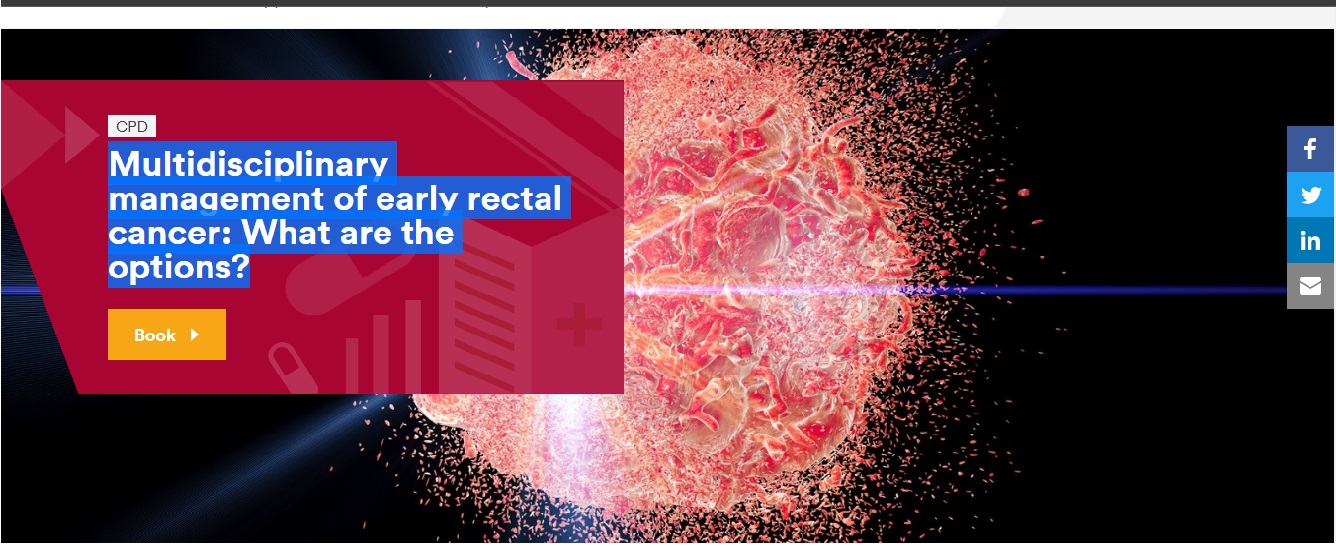Start
September 21, 2021
End
September 21, 2021
Address
Royal Society of Medicine 1 Wimpole Street London View map
Can’t make it to London for this event? You can now live stream this meeting from anywhere. All you need is a good internet connection. Click here to book the live stream.
At this meeting, a multidisciplinary faculty of top experts will provide state of the art lectures on current and emerging treatments for early rectal cancer.
You will learn about less aggressive treatments and stoma avoidance, with a focus on papillon radiotherapy, get updates on clinical trials, hear a patient perspective as part of the main programme, and will be able to discuss individual cases with national and international experts.
This event will educate, inform and influence professionals caring for patients with rectal cancer on the newer options available for the treatment of early tumours, taking into account patient perspectives and the provision of specialist services in the UK and abroad. Author Mark Davis will share his experience as a patient and a multidisciplinary audience will be part of panel discussions on the topics.
Topics include:
- To inform the audience about the current status of “Watch and Wait” strategy after (chemo) radiotherapy for early rectal cancer – both in the UK and world wide.
- To educate multidisciplinary team members including (but not exclusively) surgeons, oncologists, cancer nurses, pathologists and radiologists about the possibility of rectal preservation and stoma avoidance when treating early rectal cancer.
- To gain the patient perspective on this difficult area of decision making in cancer practice.
- To understand the influence of the Bowel Screening services on downward stage migration leading to increased diagnosis of earlier rectal cancer, and hence the need for less aggressive treatments.
We would like to thank our sponsors Ariane Medical Systems, Clatterbridge Cancer Centre, Clatterbridge Private Clinic, SurgEase Innovations and Synmed for their support of this meeting. Please note that the scientific programme and content has not been influenced in any way by the sponsors.
Join in the conversation online
Follow us on Twitter: @RoySocMed
Recent Comments